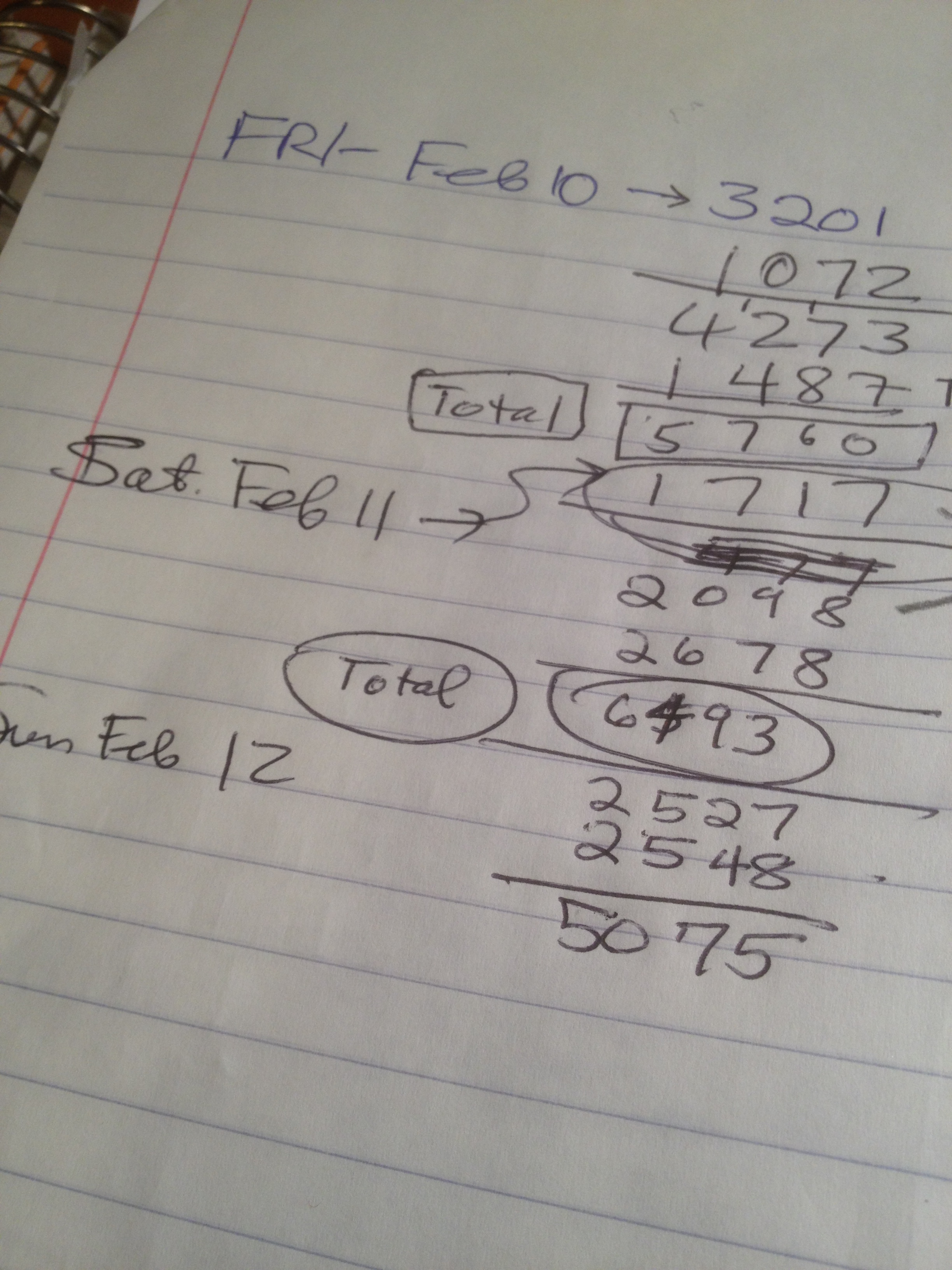This is the second of a four-part series appearing this week.
Quoting from my old blog, circa 2012:
55,000 words and counting!
My writing marathon is now in its 11th day and I really have to crank if I want to improve my per-day average. Last week, the per-day average was running about 5,700 words a day.
I took two days off to proof the first half of the MS in order to send what I’d written to the titular author—a dude am I calling El Jefe—and get him thinking about edits, or additions he’d like to make. I only wrote on three weekdays this week; ramping up again was slow. That brought my overall average down to 5,500 a day. But I have this weekend to beetle away. I hope to make some serious progress.
Technically, I only have to make it to 70,000 words, which is a mere 15,000 words away, or the length of a novella I read recently. Why only 70,000 words when the contract calls for an 80,000-word book?
Because I’ve learned from past experience on these ghostwriting projects that the act of reading the first draft typically stimulates the bylined authors to start tossing out ideas and anecdotes they never thought to mention before. Invariably, we end up running long once we add the new material in.
Over the years I’ve learned to leave a good “roominess margin.” It’s less painful to add 10,000 last-minute words than to cut 10,000 words we already love. That’s my logic, anyway.
Of course it would have to be a sunny, 60-degree day on this North Carolina mountain. But I am not going to step outside to enjoy it. Not one bit.
2019 Commentary:
Reading this again today, I’m struck by how quickly I reached for “oh-I-don’t-really-have-to-write-the-full-80,000 words” argument. Most of the publishers I’ve worked with specify a word count in their contract, but will theoretically accept anything within 10 percent of the contracted figure. That means they would have been fine with a 72,000-word book, and wouldn’t start to freak out until they were presented with a 88,000-word manuscript.
The real reason I was starting to look for an easy out is partially explained in the second graf above. I was slow ramping up in the second week of writing because I was just so tired and wiped out. The writing-all-day, researching-all-night routine was catching up to me. There was second reason as well, one that I never got into in the original post because it probably made me too uncomfortable to mention.
The truth is, on some of these chapters I was scraping the bottom of the barrel. The author had promised a tell-all type of book about his industry, but when the time came to spill the beans, he got coy. I’ve seen it happen a million times, and I was prepared for it. During our interviews together, we tried hard to get him to reveal his secrets and his vulnerable side, but he fought us on it for months.
It’s hard to write about a famous person’s interior life when they haven’t let you see that part of them. Bit by bit, he started to crack, and we were able to stick a crowbar in those parts of his stories, and get him to tell us more. But until you sit down to write those scenes, you have no idea if a particularly juicy anecdote is going to be 4,000 words or a mere 400. As I was writing, it surprised me that many of the scenes I thought would make great chapters ended up being nothing but a small passage.
The Joe I see in this post is a nervous guy who’s looking at his notes and wondering if he has enough to fill a book. Let’s see if he does.
You can follow my progress in these four posts:
How I Wrote a Book in 14 days, Part I
How I Wrote a Book in 14 days, Part II: 55,000 and Counting...
How I Wrote a Book in 14 days, Part III: 66,649 and One Day Left
How I Wrote a Book in 14 days, Part IV: 70,083 words on Day 14
This post first appeared on my old blog in slightly different form on Feb. 18, 2012.
Yes, I am trying to post here more often. Thank you for noticing. If you want to sign up for my newsletter and claim your free ebook, go here.

